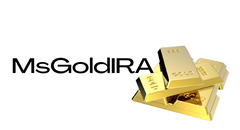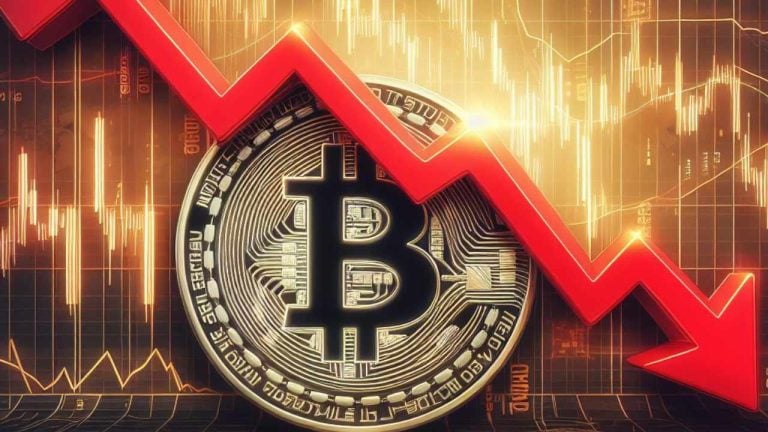
Jim Cramer's Bitcoin Prediction
Jim Cramer, the host of CNBC's Mad Money show, has expressed concerns about a potential selloff in the bitcoin market. While he does not discourage investors from speculating in bitcoin and the newly launched spot bitcoin exchange-traded funds (ETFs), he urges them to conduct thorough research before making any investment decisions.
Cramer, a former hedge fund manager and co-founder of financial news website Thestreet.com, has been closely monitoring the price outlook of bitcoin this week. His focus has particularly been on how the approval of spot bitcoin ETFs by the U.S. Securities and Exchange Commission (SEC) could impact the trajectory of the cryptocurrency.
The price of bitcoin initially surged above $47,000 in anticipation of the SEC's approval of spot bitcoin ETFs. However, following the approval, it experienced a significant drop and reached a low of nearly $40,000 on Friday. As of now, BTC has slightly recovered and is trading at $41,589. Cramer took to social media platform X to comment on the bitcoin price decline, stating, "Nasty beginning to the bitcoin selloff."
Cramer also noted that despite the expectation of a surge in value due to the ETF approval, the actual response from investors was not as significant as anticipated. He expressed his belief that someone will likely attempt to support the price of bitcoin, but emphasized that the recent rapid increase in value cannot be sustained without substantial market participation.
Some individuals challenged Cramer's assessment, pointing out that the launch of spot bitcoin ETFs was highly successful. They highlighted that bitcoin ETFs have already surpassed silver as the second-largest commodity ETF and have witnessed substantial inflows within a short period.
Interestingly, many X users view Cramer's bearish statements as a bullish sign for bitcoin. They have observed a trend, which they refer to as the "Cramer effect," where bitcoin often behaves in the opposite way to Cramer's predictions. If Cramer expresses a bullish sentiment, a bearish swing in the market is typically observed, and vice versa.
Despite his skepticism, Cramer clarified that he is not necessarily against investing in bitcoin. He referenced JPMorgan Chase CEO Jamie Dimon, who advised people to stay away from bitcoin but also acknowledged that he wouldn't dictate investment choices for others. Cramer echoed this sentiment, emphasizing the importance of individuals conducting their own research before investing in spot bitcoin ETFs.
Cramer also mentioned SEC Chair Gary Gensler's statement that the regulator's approval of spot bitcoin ETFs does not imply an endorsement of bitcoin itself. Cramer highlighted that bitcoin has been in existence for 15 years and is quite established, thereby suggesting that he does not aim to impede speculation in the cryptocurrency as long as investors are well-informed.
Last week, Cramer stated that bitcoin may be reaching its peak. However, the week before, he described bitcoin as a "technological marvel" that cannot be eradicated and is here to stay.
What are your thoughts on Jim Cramer's advice and warnings regarding bitcoin? Feel free to share your opinions in the comments section below.
Frequently Asked Questions
What is the best precious metal to invest in?
This question depends on how risky you are willing to take, and what return you want. Gold is a traditional haven investment. However, it is not always the most profitable. For example, if your goal is to make quick money, gold may not suit you. You should invest in silver if you have the patience and time.
Gold is the best investment if you aren't looking to get rich quick. Silver might be a better investment option if steady returns are desired over a long period of time.
Is gold buying a good retirement option?
Although gold investment may not seem appealing at first glance due to the high average global gold consumption, it's worth considering.
Physical bullion is the most popular method of investing in gold. There are other ways to invest gold. Research all options carefully and make an informed decision about what you desire from your investments.
If you don't want to keep your wealth safe, buying shares in companies that extract gold and mining equipment could be a better choice. If you are looking for cash flow from your investment, buying gold stocks will work well.
ETFs allow you to invest in exchange-traded funds. These funds give you exposure, but not actual gold, by investing in gold-related securities. These ETFs often include stocks of gold miners, precious metals refiners, and commodity trading companies.
What are the pros and disadvantages of a gold IRA
An Individual Retirement Plan (IRA) has a major advantage over regular savings accounts. It doesn't tax any interest earned. This makes an IRA a great choice for people who are looking to save money but don’t want to pay any tax on the interest earned. This type of investment has its downsides.
For example, if you withdraw too much from your IRA once, you could lose all your accumulated funds. You may also be prohibited by the IRS from making withdrawals from an IRA after you turn 59 1/2. You will likely have to pay a penalty fee if you withdraw funds from an IRA.
Another problem is the cost of managing your IRA. Many banks charge between 0.5%-2.0% per year. Other providers charge monthly management charges ranging anywhere from $10 to $50.
If you prefer your money to be kept out of a bank, then you will need insurance. Many insurers require that you own at least one ounce of gold before you can make a claim. You might be required to buy insurance that covers losses up to $500,000.
If you decide to open a gold IRA, it is important to know how much you can use. Some providers limit the number of ounces of gold that you can own. Others allow you to pick your weight.
It is also up to you to decide whether you want to purchase physical gold or futures. Physical gold is more costly than gold futures. Futures contracts offer flexibility for buying gold. Futures contracts allow you to create a contract with a specified expiration date.
Also, you will need to decide on the type of insurance coverage you would like. The standard policy doesn’t provide theft protection or loss due fire, flood, or earthquake. The policy does not cover natural disasters. If you live in a high-risk area, you may want to add additional coverage.
Insurance is not enough. You also need to think about the cost of gold storage. Storage costs are not covered by insurance. For safekeeping, banks typically charge $25-40 per month.
A qualified custodian is required to help you open a Gold IRA. A custodian helps you keep track of your investments, and ensures compliance with federal regulations. Custodians don't have the right to sell assets. Instead, they must retain them for as long and as you require.
Once you have chosen the right type of IRA to suit your needs, it is time to fill out paperwork defining your goals. You must include information about what investments you would like to make (e.g. stocks, bonds and mutual funds). You should also specify how much you want to invest each month.
After completing the forms, send them along with a check or a small deposit to your chosen provider. After reviewing your application, the company will send you a confirmation mail.
You should consult a financial planner before opening a Gold IRA. Financial planners are experts in investing and will help you decide which type of IRA works best for your situation. They can help reduce your expenses by helping you find cheaper alternatives to buying insurance.
Should You Invest in gold for Retirement?
This will depend on how much money and whether you were able to invest in gold at the time that you started saving. Consider investing in both.
In addition to being a safe investment, gold also offers potential returns. It is a good choice for retirees.
Gold is more volatile than most other investments. This causes its value to fluctuate over time.
However, this does not mean that gold should be avoided. It just means that you need to factor in fluctuations to your overall portfolio.
Another advantage to gold is that it can be used as a tangible asset. Gold is more convenient than bonds or stocks because it can be stored easily. It can also be carried.
Your gold will always be accessible as long you keep it in a safe place. Plus, there are no storage fees associated with holding physical gold.
Investing in gold can help protect against inflation. As gold prices rise in tandem with other commodities it can be a good hedge against rising cost.
It's also a good idea to have a portion your savings invested in something which isn't losing value. Gold rises in the face of a falling stock market.
Another advantage to investing in gold is the ability to sell it whenever you wish. As with stocks, your position can be liquidated whenever you require cash. You don’t even need to wait until retirement to liquidate your position.
If you do decide to invest in gold, make sure to diversify your holdings. Don't place all your eggs in the same basket.
Do not buy too much at one time. Start with just a few drops. Continue adding more as necessary.
Don't expect to be rich overnight. It's not to get rich quickly, but to accumulate enough wealth to no longer need Social Security benefits.
And while gold might not be the best investment for everyone, it could be a great supplement to any retirement plan.
Statistics
- (Basically, if your GDP grows by 2%, you need miners to dig 2% more gold out of the ground every year to keep prices steady.) (smartasset.com)
- Contribution limits$6,000 (49 and under) $7,000 (50 and up)$6,000 (49 and under) $7,000 (50 and up)$58,000 or 25% of your annual compensation (whichever is smaller) (lendedu.com)
- If you accidentally make an improper transaction, the IRS will disallow it and count it as a withdrawal, so you would owe income tax on the item's value and, if you are younger than 59 ½, an additional 10% early withdrawal penalty. (forbes.com)
- The price of gold jumped 131 percent from late 2007 to September 2011, when it hit a high of $1,921 an ounce, according to the World Gold Council. (aarp.org)
- Gold is considered a collectible, and profits from a sale are taxed at a maximum rate of 28 percent. (aarp.org)













